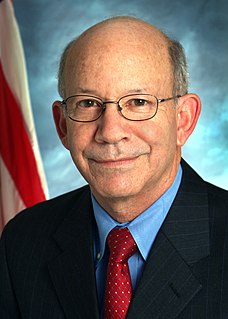A Quote by David Ignatius
But the U.S. has to be careful. If our strategy depends on Sunnis doing the fighting to clear Mosul and Ramadi - and, as near as I can tell, that is the strategy - then you have to be careful that Sunnis don't perceive the U.S. to be operating arm in arm with Iran or with Iranian-backed Shiite militias that Abadi - Prime Minister Abadi is using in Iraq, so that, in effect, we're fronting for Iran.
Related Quotes
It's easy to say, let's go in and get the bad guys. But you have a divided country of Sunnis and Shias. The United States goes and takes action there on behalf of the Iraqi government. You've got Iran coming in and saying we're going to stand with Iraqi Prime Minister Nuri al-Maliki, so now we're aligning ourselves with Iran, and if we do air strikes, becoming de facto air force for them.
Americans have eliminated Iran's worst enemies, the Taliban in Afghanistan and Saddam [Hussein]. I occasionally threatened my Iranian counterpart in Kabul that one day I would send him a big bill for what we did. But, seriously, Iran is pursuing a dual strategy in Iraq. On the one hand, the Iranians, after decades of hostility, are now interested in good relations. On the other hand, they want to keep the country weak and dominate the region.
To me, what I've always said is that the president [Barack Obama] has set up an awful situation through his deal with Iran, because what his deal with Iran has done is empower them and enrich them. And that's the way ISIS has been created and formed here. ISIS is created and formed because of the abuse that [Bashar] Assad and his Iranian sponsors have rained down on the Sunnis in Syria.
By accident of geography, the world's major oil resources are in Shi'ite-dominated areas. Iran's oil is concentrated right near the gulf, which happens to be an Arab area, not Persian. Khuzestan is Arab, has been loyal to Iran, fought with Iran not Iraq during the Iran-Iraq war. This is a potential source of dissension. I would be amazed if there isn't an attempt going on to stir up secessionist elements in Khuzestan.
After the revolution of 1979, Iran embarked on a policy of sectarianism. Iran began a policy of expanding its revolution, of interfering with the affairs of its neighbors, a policy of assassinating diplomats and of attacking embassies. Iran is responsible for a number of terrorist attacks in the Kingdom, it is responsible for smuggling explosives and drugs into Saudi Arabia. And Iran is responsible for setting up sectarian militias in Iraq, Pakistan, Afghanistan and Yemen, whose objective is to destabilize those countries.
Right, because they're looking at also organizing the Sunni tribes up around Mosul to take back that city as well. That's the second largest city in Iraq. That's going to be a very, very tough fight. And the Shia militias were not used in Ramadi, and we're told by the Iraqi generals that they don't want any Shia militias up in Mosul, either, to take back that city. So - but again, that's going to be a very, very tough fight.





































